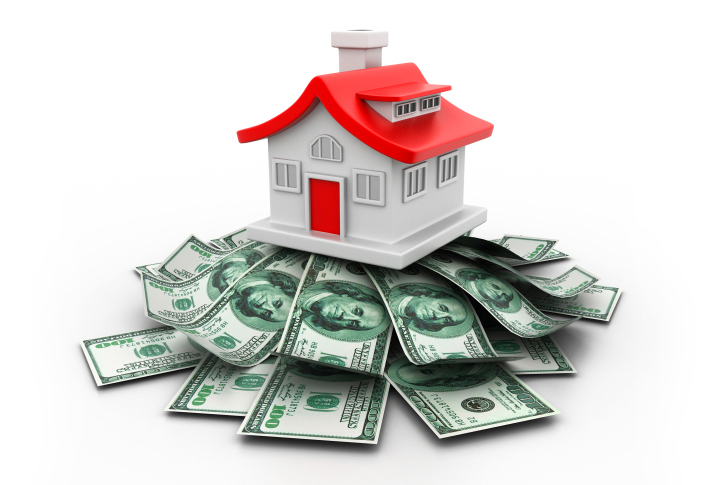 The coronavirus pandemic has impacted everyone. For homeowners, they might be wondering how they are able to keep up with their mortgage in light of shelter in place orders, financial difficulties, and unemployment problems.
The coronavirus pandemic has impacted everyone. For homeowners, they might be wondering how they are able to keep up with their mortgage in light of shelter in place orders, financial difficulties, and unemployment problems.
Federal agencies and regulatory authorities are putting relief measures in place during the pandemic to help people who might have trouble keeping up with their mortgage. When it comes to coronavirus mortgage relief, there are a few tips that everyone should keep in mind.
Talk To The Lender First
The first step is always to talk to the lender directly and see if there are relief options. The last thing A lender wants us to have a bunch of loans go into default. When this happens, the lender might be forced to sell the property for a significantly reduced cost, meaning they will lose a significant amount of money. They do not want their borrowers to foreclose either. Therefore, as long as they are given enough notice, they should be able to help borrowers by adjusting their payment plans.
Understand The Options
Everyone has a different type of mortgage and every contract is different. Borrowers me to take a look at the details of their plans and make sure they understand what their options are. For example, borrowers with certain types of loans might have lenders who are obligated to offer deferred or reduce mortgage payments for a period of six months. This is called forbearance.
This means that borrowers do not have to pay their mortgage for a few months and will not be charged late fees or added interest. It is important to know that they will owe this money eventually. All borrowers need to read their contracts to see if they qualify for forbearance.
Foreclosures And Evictions Have Been Halted
Finally, during the pandemic, Federal officials have imposed a nationwide halt when it comes to foreclosures and evictions. This moratorium only affects borrowers with certain plans. Therefore, everyone needs to read their contracts closely to see if they’re playing qualifies. Furthermore, there are certain cities, counties, and states that have halted foreclosures for everybody.
The coronavirus pandemic has been difficult for everyone. It is important to keep these mortgage relief options in mind and ask for help from professionals. That way, everyone can understand all of your options.
 Last week’s economic news included readings on new and existing home sales and Fed Chair Jerome Powell’s testimony on changing the Fed’s business loan policy. Weekly readings on mortgage rates and jobless claims were also released.
Last week’s economic news included readings on new and existing home sales and Fed Chair Jerome Powell’s testimony on changing the Fed’s business loan policy. Weekly readings on mortgage rates and jobless claims were also released. You’ve found the perfect new house or condo, and you are now preparing an offer that you believe the seller will find tempting enough to accept. However, you know that there are going to be thousands of dollars in closing costs that need to be paid before the sale is completed and you become the home’s new owner.
You’ve found the perfect new house or condo, and you are now preparing an offer that you believe the seller will find tempting enough to accept. However, you know that there are going to be thousands of dollars in closing costs that need to be paid before the sale is completed and you become the home’s new owner. Most people have heard the saying that it might be a good idea to refinance if mortgage rates drop. For those who might not know, refinancing is essentially taking out a new loan to replace the old one because the new loan has a lower interest rate.
Most people have heard the saying that it might be a good idea to refinance if mortgage rates drop. For those who might not know, refinancing is essentially taking out a new loan to replace the old one because the new loan has a lower interest rate. With mortgage bubbles and real estate issues still in recent memory, one might feel that their best option is to buy their next home using cash instead of borrowing the necessary funds. In today’s article we’ll explore the pros and cons of paying cash for that next house or condo.
With mortgage bubbles and real estate issues still in recent memory, one might feel that their best option is to buy their next home using cash instead of borrowing the necessary funds. In today’s article we’ll explore the pros and cons of paying cash for that next house or condo. The coronavirus pandemic has impacted everyone and everyone is trying to go about their lives in a safe manner. With so many people spending time at home, now is the perfect time to conduct home improvement projects. At the same time, carrying out a home improvement project is going to require supplies.
The coronavirus pandemic has impacted everyone and everyone is trying to go about their lives in a safe manner. With so many people spending time at home, now is the perfect time to conduct home improvement projects. At the same time, carrying out a home improvement project is going to require supplies.